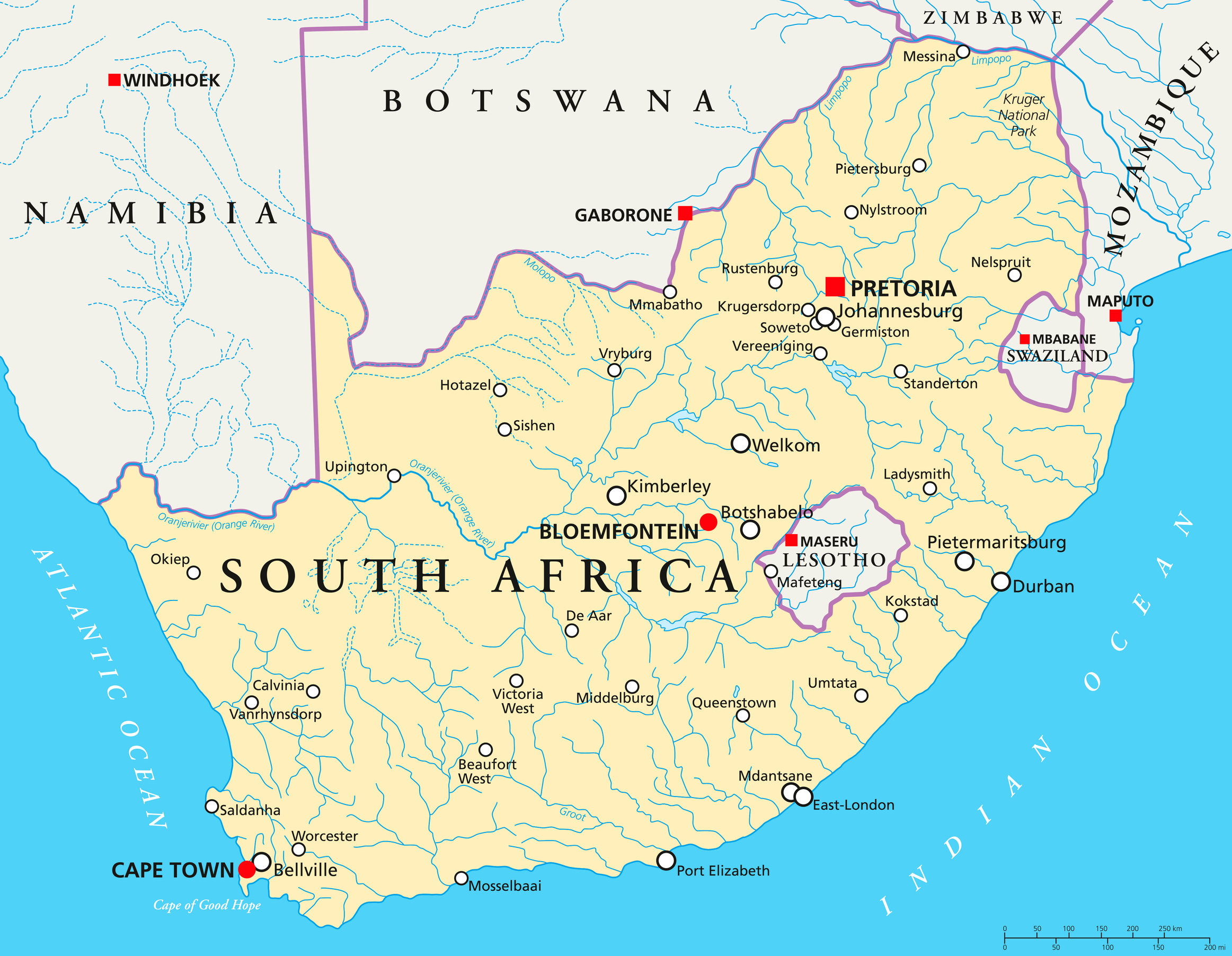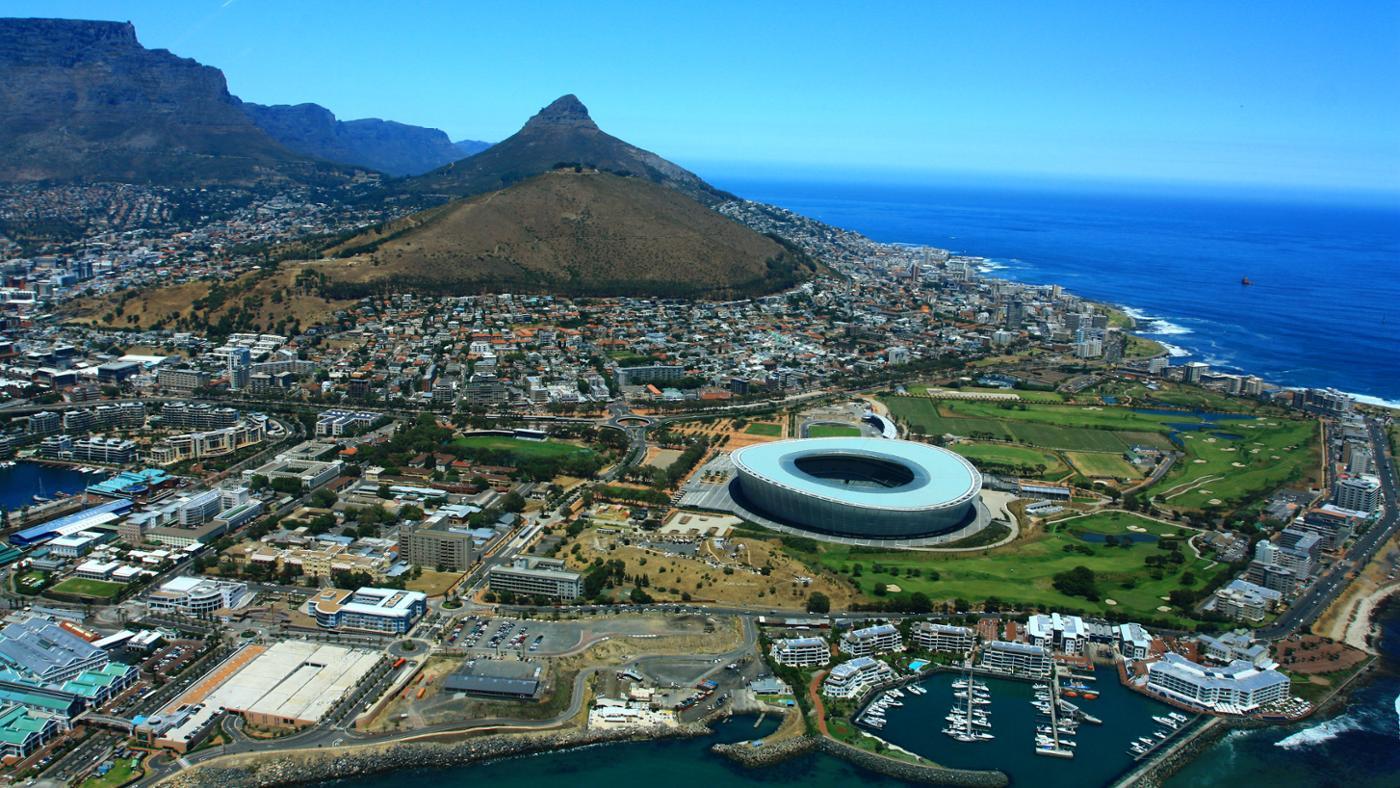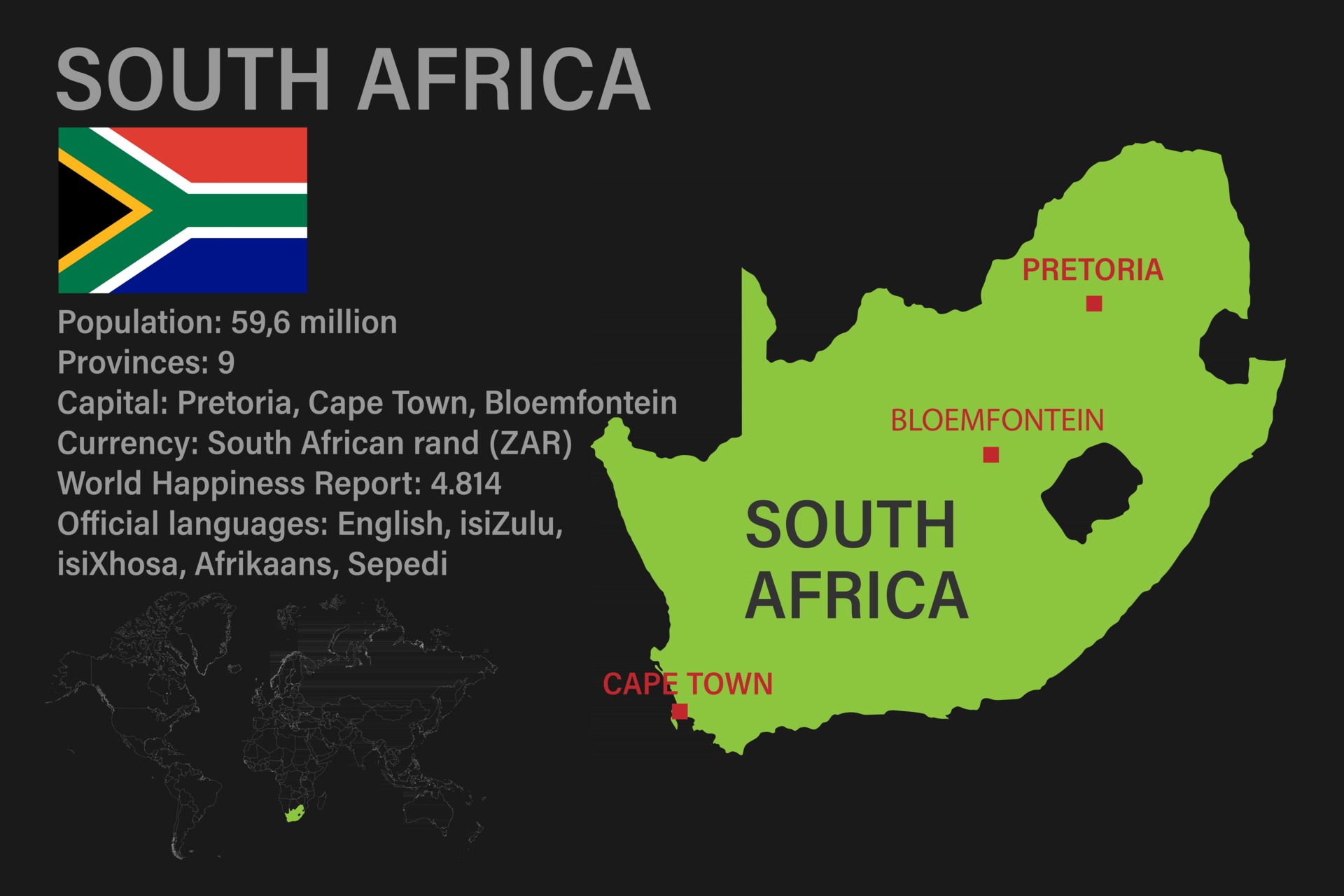Exploring the Capitals of South Africa: A Comprehensive Guide
Related Articles: Exploring the Capitals of South Africa: A Comprehensive Guide
Introduction
With great pleasure, we will explore the intriguing topic related to Exploring the Capitals of South Africa: A Comprehensive Guide. Let’s weave interesting information and offer fresh perspectives to the readers.
Table of Content
Exploring the Capitals of South Africa: A Comprehensive Guide

South Africa, a vibrant nation on the southern tip of the African continent, is renowned for its diverse landscapes, rich history, and vibrant culture. Understanding the country’s political and administrative structure necessitates familiarity with its capitals, each holding unique significance and contributing to the nation’s overall governance.
A Nation of Three Capitals
Unlike many countries with a single capital city, South Africa boasts three distinct capitals, each fulfilling a specific role in the country’s governance:
- Pretoria (Tshwane): Serving as the administrative capital, Pretoria houses the seat of the executive branch of government, with the Union Buildings, the official residence of the President, standing as a prominent symbol.
- Cape Town: This picturesque coastal city is the legislative capital, home to the Parliament of South Africa. The historic Parliament building, located in the heart of the city, serves as the venue for debates and legislation.
- Bloemfontein: Designated as the judicial capital, Bloemfontein houses the Supreme Court of Appeal, the highest court in the country. The majestic Palace of Justice stands as a testament to the city’s judicial prominence.
Delving Deeper into Each Capital
Pretoria (Tshwane): The Administrative Hub
Pretoria, officially known as Tshwane, is a bustling city with a rich history. The city’s strategic location, nestled between the Magaliesberg and the Witwatersrand mountain ranges, played a crucial role in its development. Its proximity to the mineral-rich Witwatersrand region fueled its growth, transforming it into a major industrial and administrative center.
Beyond its administrative functions, Pretoria is renowned for its beautiful jacaranda trees, which bloom in vibrant purple hues during spring, transforming the city into a picturesque spectacle. The city also boasts numerous museums, art galleries, and cultural institutions, reflecting its diverse heritage.
Cape Town: The Legislative Heart
Cape Town, situated on the southwestern tip of the country, is a cosmopolitan city known for its iconic Table Mountain, stunning harbor, and vibrant cultural scene. Its history is intertwined with the arrival of European settlers, leading to its development as a major trading port and a center of political power.
The city’s legislative role is evident in the presence of Parliament, where South Africa’s laws are debated and enacted. Cape Town also houses the National Assembly and the National Council of Provinces, representing the country’s provinces and ensuring regional voices are heard in the legislative process.
Bloemfontein: The Seat of Justice
Bloemfontein, located in the Free State province, holds the distinction of being the judicial capital. Its strategic location, situated in the heart of the country, made it a natural choice for the establishment of the Supreme Court of Appeal.
The city’s history is closely intertwined with the Anglo-Boer War, a period of conflict that shaped the country’s political landscape. Today, Bloemfontein stands as a symbol of South Africa’s legal system, with the Supreme Court of Appeal upholding the rule of law and ensuring justice for all.
The Significance of Three Capitals
The decision to establish three capitals in South Africa reflects the country’s commitment to decentralization and inclusivity. By distributing key government functions across different regions, the system aims to:
- Promote regional development: The presence of capital functions in different provinces stimulates economic activity, infrastructure development, and job creation in those areas.
- Ensure fair representation: Having capitals in various regions helps to ensure that diverse voices and perspectives are represented in the national decision-making process.
- Strengthen national unity: The spread of capital functions across the country fosters a sense of national unity and promotes a shared sense of belonging among citizens.
FAQs: Understanding South Africa’s Capitals
Q: Why does South Africa have three capitals?
A: The decision to establish three capitals was made after the end of apartheid to promote decentralization, ensure fair representation, and foster national unity.
Q: What are the main functions of each capital?
A: Pretoria (Tshwane) serves as the administrative capital, Cape Town is the legislative capital, and Bloemfontein is the judicial capital.
Q: How do the capitals contribute to South Africa’s governance?
A: Each capital plays a vital role in the country’s governance, with Pretoria housing the executive branch, Cape Town serving as the seat of Parliament, and Bloemfontein hosting the Supreme Court of Appeal.
Q: Are there any other significant cities in South Africa?
A: Yes, South Africa has several other significant cities, including Johannesburg, Durban, and Port Elizabeth, each contributing to the country’s economy, culture, and social fabric.
Tips for Exploring South Africa’s Capitals
- Plan your itinerary: Allocate sufficient time to explore each capital, as each offers unique experiences and attractions.
- Embrace local culture: Engage with the local communities, sample traditional cuisine, and immerse yourself in the vibrant cultural scene.
- Consider visiting during specific events: Check for festivals, cultural celebrations, and sporting events that may be happening during your visit.
- Utilize public transportation: South Africa’s public transportation system is efficient and affordable, allowing you to explore the capitals without the hassle of driving.
- Respect local customs: Show respect for local customs and traditions, and be mindful of your behavior while exploring the country.
Conclusion: A Nation of Diverse Capitals
South Africa’s three capitals stand as a testament to the country’s commitment to decentralization, inclusivity, and fair representation. Each capital, with its unique history, cultural heritage, and role in governance, contributes to the vibrant tapestry of South African life. Exploring these capitals provides a unique opportunity to understand the complexities of South Africa’s political landscape, appreciate its rich history, and experience the diversity of its cultural offerings.







Closure
Thus, we hope this article has provided valuable insights into Exploring the Capitals of South Africa: A Comprehensive Guide. We appreciate your attention to our article. See you in our next article!
